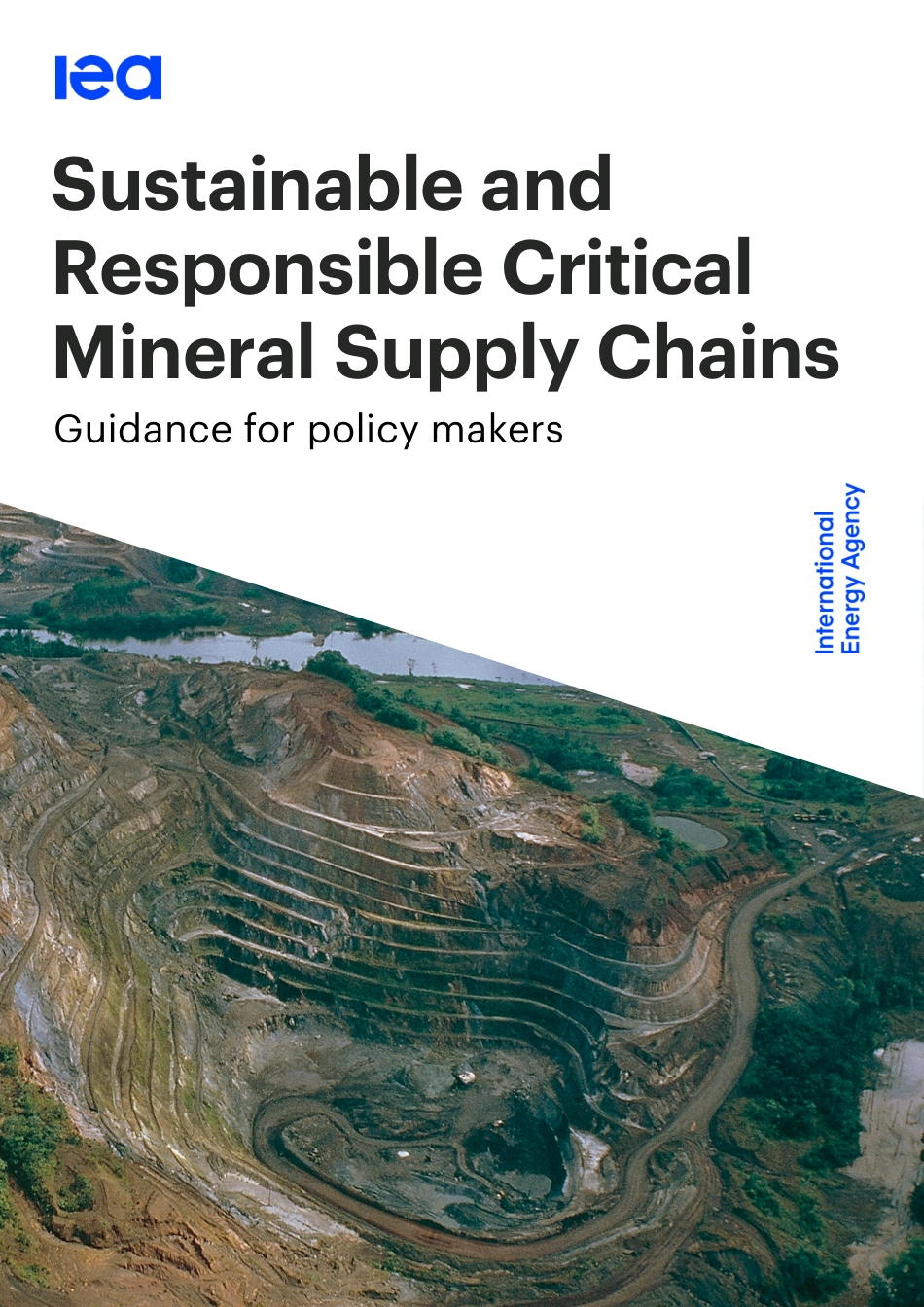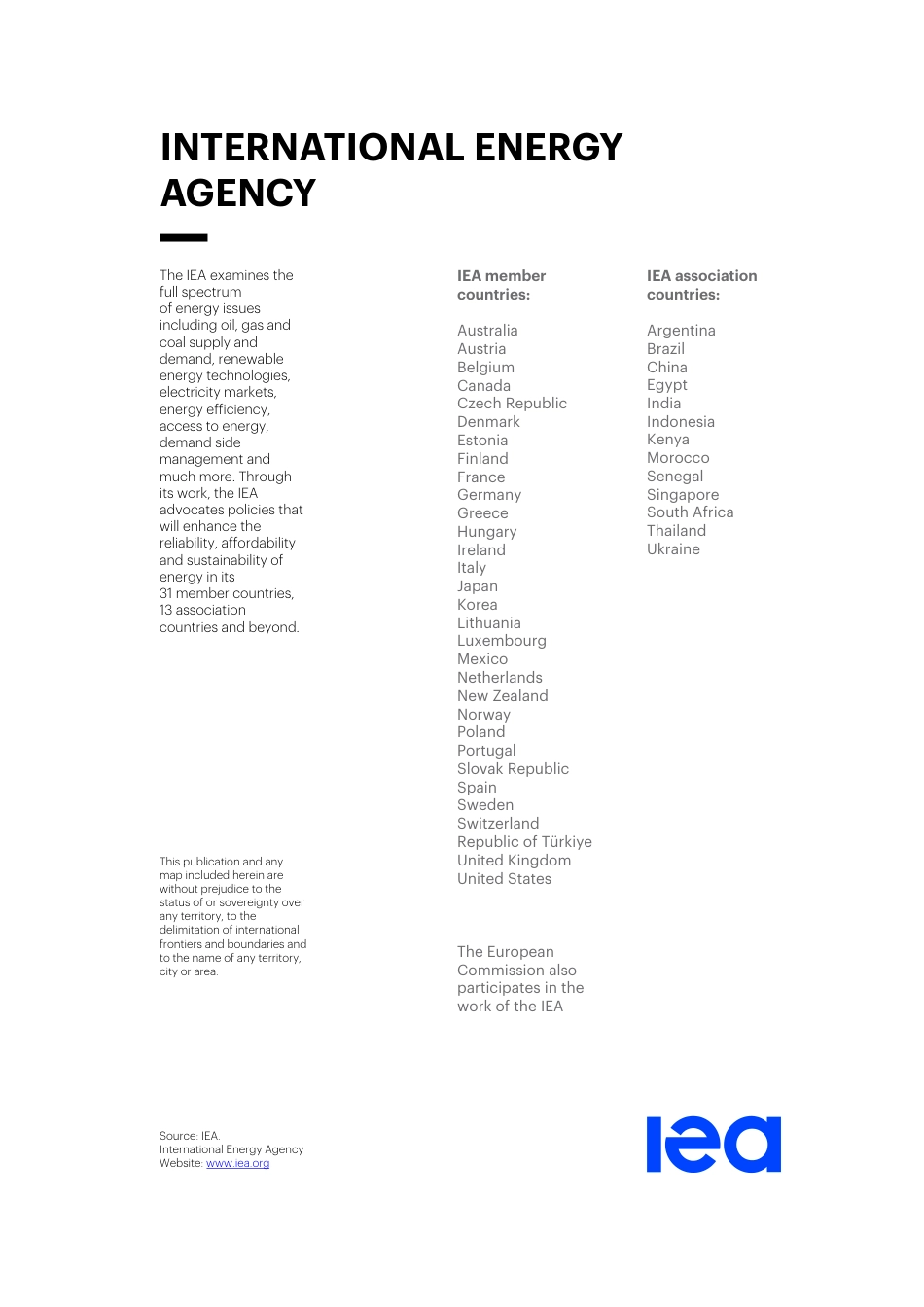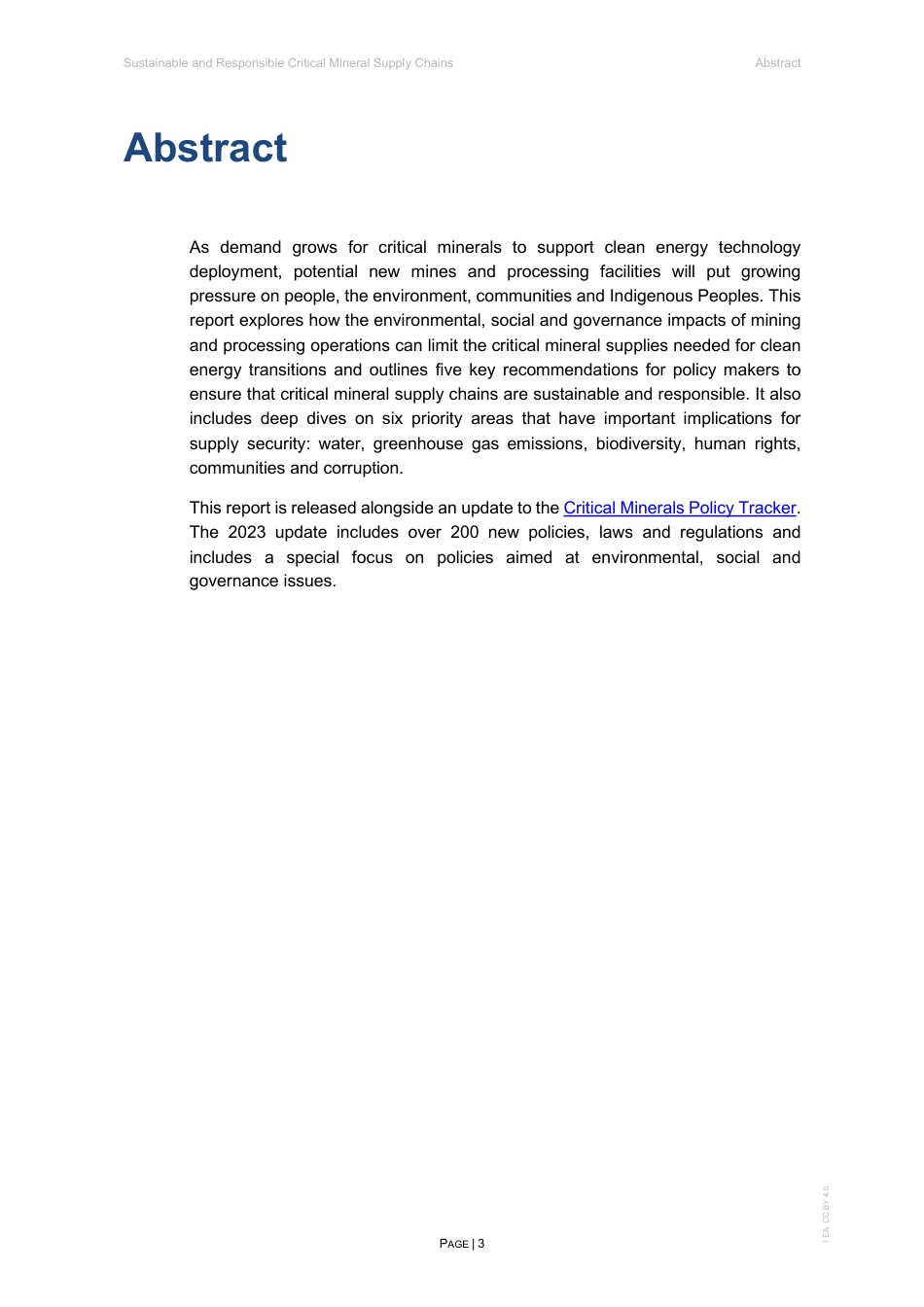Sustainable andResponsible Critical Mineral Supply ChainsGuidance for policy makersThe IEA examines the full spectrum of energy issues including oil, gas and coal supply and demand, renewable energy technologies, electricity markets, energy efficiency, access to energy, demand side management and much more. Through its work, the IEA advocates policies that will enhance the reliability, affordability and sustainability of energy in its 31 member countries, 13 association countries and beyond.This publication and any map included herein are without prejudice to the status of or sovereignty over any territory, to the delimitation of international frontiers and boundaries and to the name of any territory, city or area.Source: IEA. International Energy Agency Website: www.iea.orgIEA member countries: AustraliaAustriaBelgiumCanadaCzech RepublicDenmarkEstoniaFinlandFranceGermanyGreeceHungaryIrelandItalyJapanKoreaLithuaniaLuxembourgMexicoNetherlandsNew ZealandNorwayPolandPortugalSlovak RepublicSpainSwedenSwitzerlandRepublic of TürkiyeUnited KingdomUnited StatesThe European Commission also participates in the work of the IEAIEA association countries:Argentina BrazilChinaEgyptIndiaIndonesiaKenyaMoroccoSenegalSingapore South Africa Thailand UkraineINTERNATIONAL ENERGYAGENCYSustainable and Responsible Critical Mineral Supply Chains Abstract PAGE | 3 I EA. CC BY 4.0. Abstract As demand grows for critical minerals to support clean energy technology deployment, potential new mines and processing facilities will put growing pressure on people, the environment, communities and Indigenous Peoples. This report explores how the environmental, social and governance impacts of mining and processing operations can limit the critical mineral supplies needed for clean energy transi...



